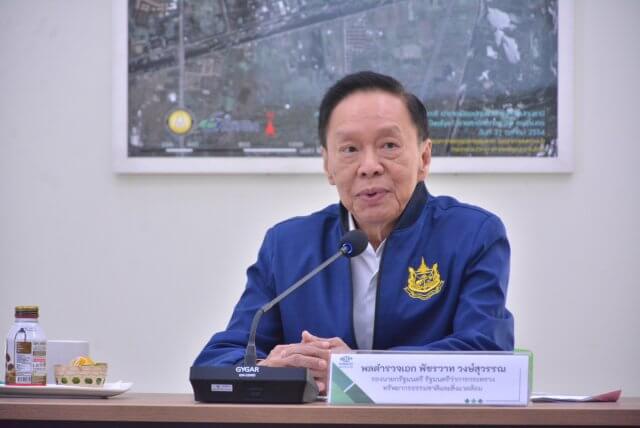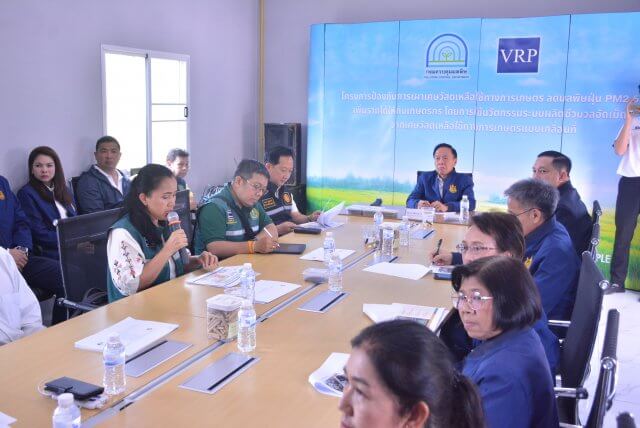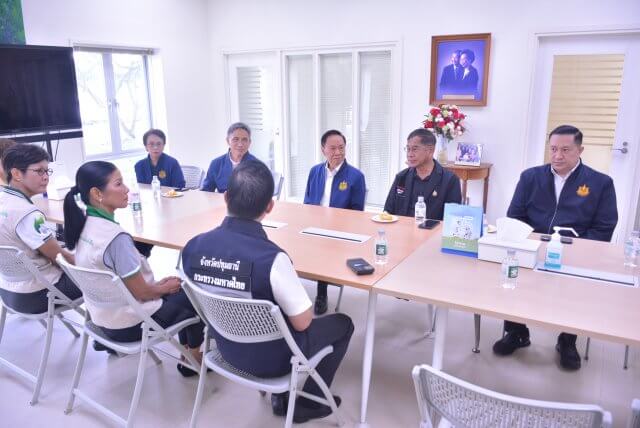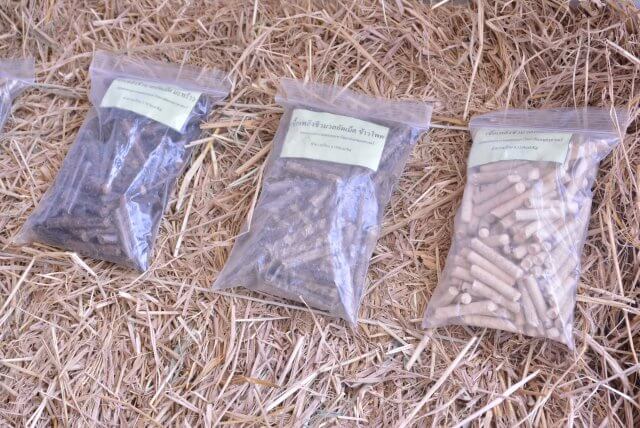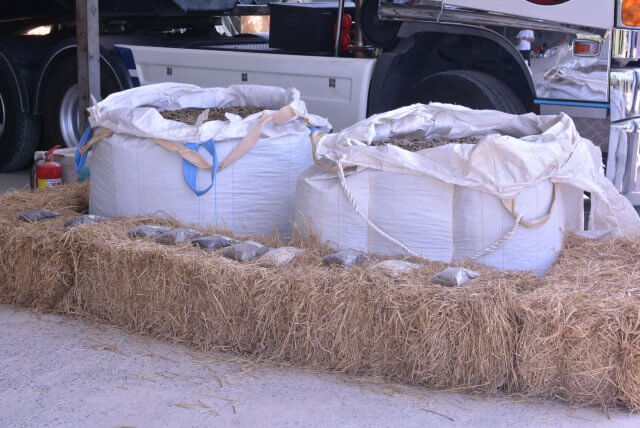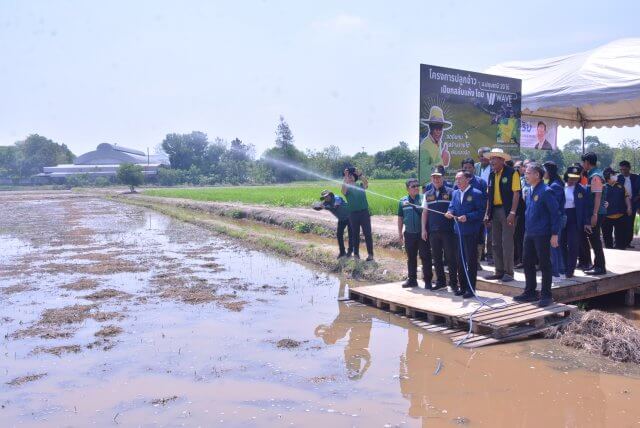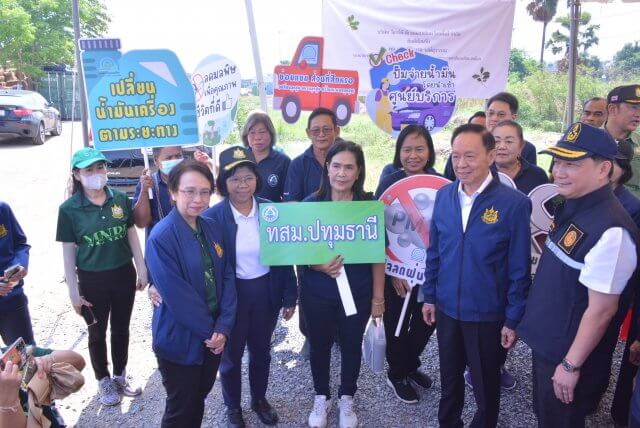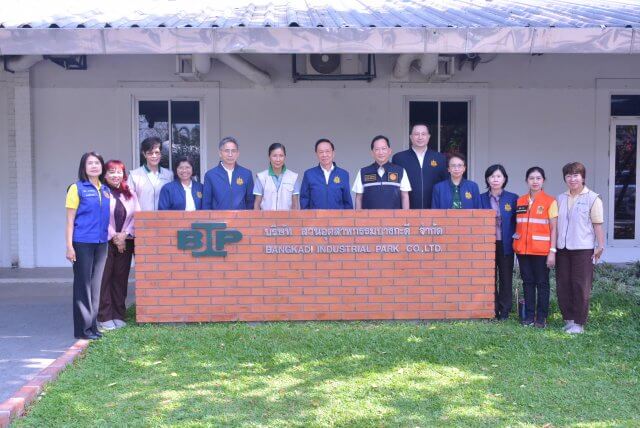
On 30 March 2024, Pol. Gen. Patcharawat Wongsuwan, Deputy Prime Minister and Minister of the Natural Resources and Environment, and Capt. Ratchata Phisitbanakorn, Assistant Minister of the Ministry of Natural Resources and Environment (MNRE), Mr. Thalernsak Phetsuwan, Deputy Permanent Secretary of MNRE, and Ms. Preeyaporn Suwanaged, Director General of the Pollution Control Department (PCD) visited on-site area to monitor PM2.5 situation in Pathum Thanni province and the operations of Bangkadi Industrial Park. In addition, Mr. Pasakorn Boonyalak, Governor of Pathum Thani province, Ms. Kobkarn Wattanavrangkul, Chairperson of Bangkadi Industrial Park Company Limited, and Pol Lt Gen Kamronwit Toopkrajang, Chief Executive of Pathum Thani Provincial Administrative Organization (PAO) welcomed the groups. After visiting Bangkadi Industrial Park, they also visited the Biomass Pellet Manufacturing Plant of VRP Development Holdings Co.,Ltd. and no-burn rice farming practice.
Pol. Gen. Patcharawat revealed that today he visited and monitored PM2.5 situation in Pathum Thani province and found that it was very well managed under the Governor of Pathum Thani province. Pathum Thani province has 67% rice fields of the total land of the province and more than 3,400 industrial factories. However, the air quality has been managed to be within good standard, especially in the Industrial Park which has 38 factories. The environment in the Industrial Park has been well managed, with an air treatment system that does not affect dust. They can co-exist with communities and serve as a model for environmental governance projects. With regard to the visit to the Biomass Pellet Manufacturing Plant which PCD signed a Memorandum of Understanding with VRP Development Holdings Co., Ltd, this will support the development of tools for preventing and reducing the burning of agricultural waste to reduce PM2.5 problem. Agricultural waste includes: rice straw, sugarcane leaves, bamboo trees and corn cobs, coconut husks, and other pelleted tree debris. This makes it possible to reduce the amount of dust and sell to Mae Moh Power Plant. Regarding to no-burn rice farming practice, it is a good cooperation with farmers in Pathum Thani province because it is an important part of reducing the amount of PM2.5 for Bangkok and its vicinity.
MNRE attempts to integrate problem-solving with all sectors to reduce the amount of PM2.5. along with tangibly promoting burn-free agriculture, supporting the innovation development by bringing waste to produce biomass pellets, which is a way to reduce burning. At the same time, this problem requires the cooperation of all sectors.

